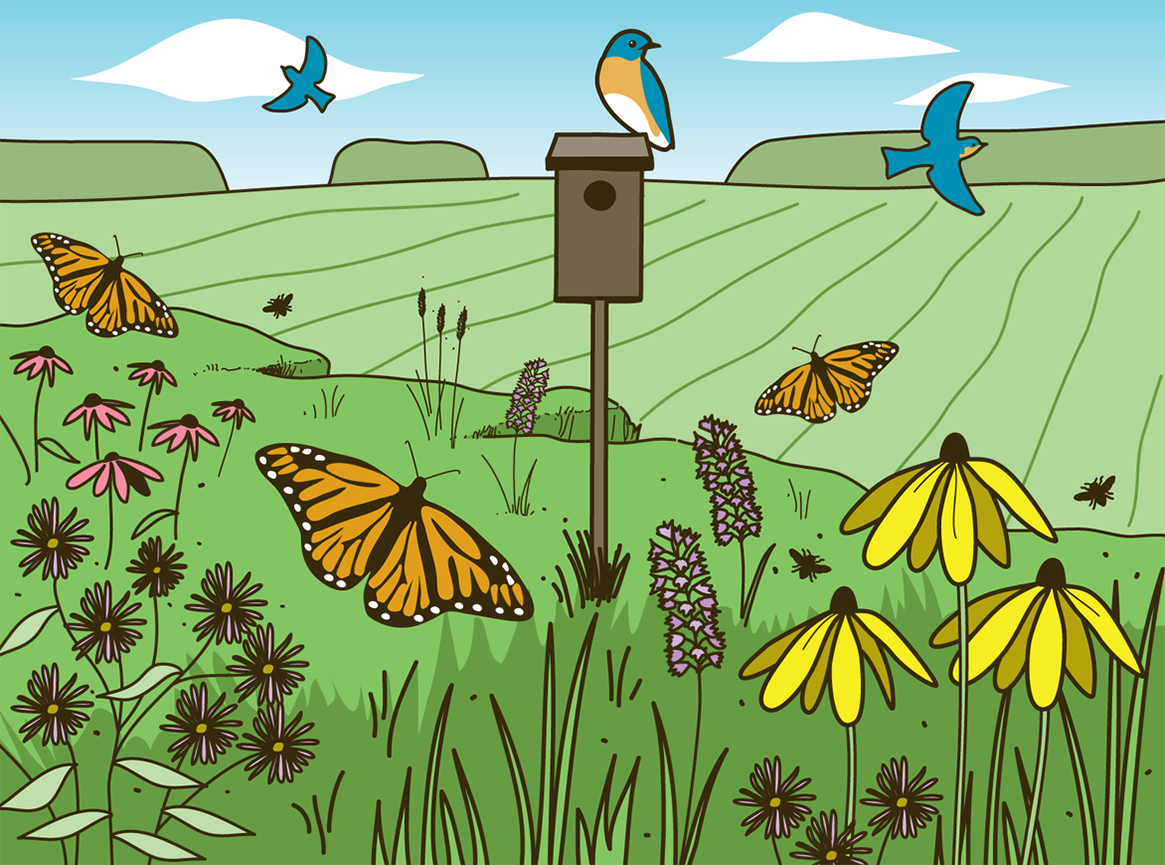Producing Ecosystem Services through Nature-based Solutions
What We Do
The ALUS program is a scalable, turn-key solution developed at the community level that engages farmers and ranchers in creating, restoring and enhancing new acres of nature to respond to local environmental challenges, help build community resilience and fight climate change and biodiversity loss.
Our Guiding Principles

Community-developed
The ALUS program is flexible. It is designed to be customized by local communities to respect local agricultural and environmental priorities, and help create rural resilience.

Farmer-delivered
Agricultural producers are in a unique position to provide important solutions to some of the most pressing environmental challenges of our time, including climate change and biodiversity loss.

Science-based
Based on sound scientific principles and verification guidelines, ALUS provides valuable support and technical expertise for the design and implementation of natural infrastructure projects and nature-based solutions.

Market-driven
The ecological services produced by ALUS projects have economic value on the marketplace, which ALUS is actively developing. Citizens, corporations and philanthropists invest directly in environmental stewardship.

Integrated
The delivery of the ALUS program is intended to complement existing conservation programs, including federal and provincial government policy frameworks.

Targeted
The ALUS program produces ecosystem services on marginal and ecologically sensitive parcels and on lands that can be managed in a different manner.

Accountable
ALUS projects are independently monitored, verified and audited by trusted farm organizations or reliable institutions. Data collection respects the highest standards in data integrity and confidentiality.

Voluntary
Farmers and ranchers who choose to participate in the ALUS program have flexible agreements that suit their operation and offer them financial compensation for their ecosystem management.
Examples of ALUS Projects
Wetlands
Trees and shrubs
Regenerative Ag
Species at Risk
Community Projects
ALUS partnerships help build vibrant communities by implementing the program through a Partnership Advisory Committee (PAC) made up of local farmers, community stakeholders and other NGOs. This allows each community program to address specific local environmental challenges and work collaboratively towards implementing sustainable solutions. ALUS provides financial and technical support for the implementation of these projects and annual payments to its participants for the production of ecosystem services and the ongoing stewardship of projects.
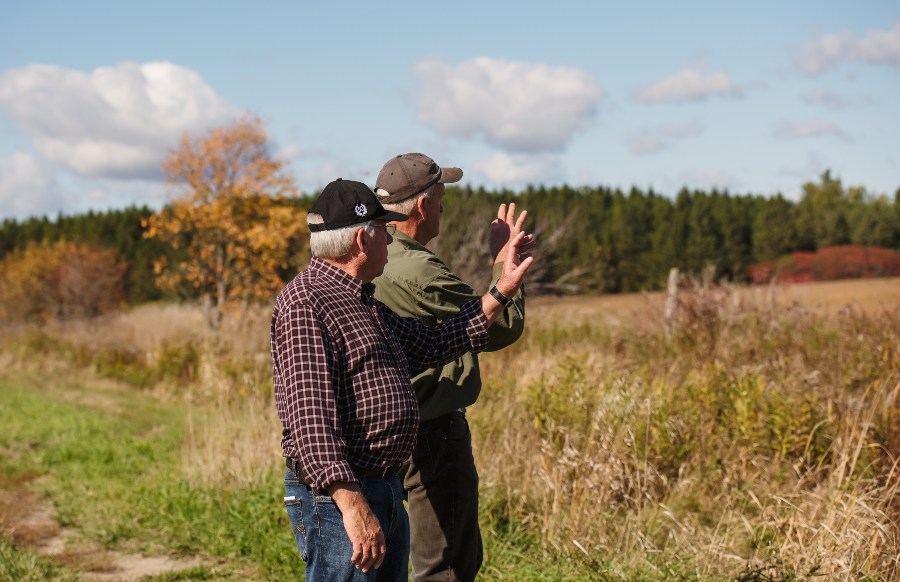

Community Projects
ALUS partnerships help build vibrant communities by implementing the program through a Partnership Advisory Committee (PAC) made up of local farmers, community stakeholders and other NGOs. This allows each community program to address specific local environmental challenges and work collaboratively towards implementing sustainable solutions. ALUS provides financial and technical support for the implementation of these projects and annual payments to its participants for the production of ecosystem services and the ongoing stewardship of projects.
Ecosystem Services
ALUS network consists of close to 1,800 farmers and ranchers in 39 communities who deliver ecosystem services in their communities, such as cleaner air, cleaner water, carbon sequestration, erosion control, flood and drought mitigation, pollinator and wildlife habitat. On more than 52,600 acres, these farmers and ranchers restore wetlands, install riparian buffers, plant windbreaks and ecobuffers, manage sustainable drainage systems, create pollinator habitat and establish other ecologically beneficial projects.
Innovation & Technology
ALUS provides participating communities with innovative technology and data infrastructures and tools. With these tailored solutions, ALUS captures detailed information about the benefits of ecosystem projects across the country, quantifying carbon sequestration, nutrient capture and biodiversity benefits. These data and technologies can then be applied to make strategic decisions about projects to ensure they deliver maximum ecological and financial benefit to the community.
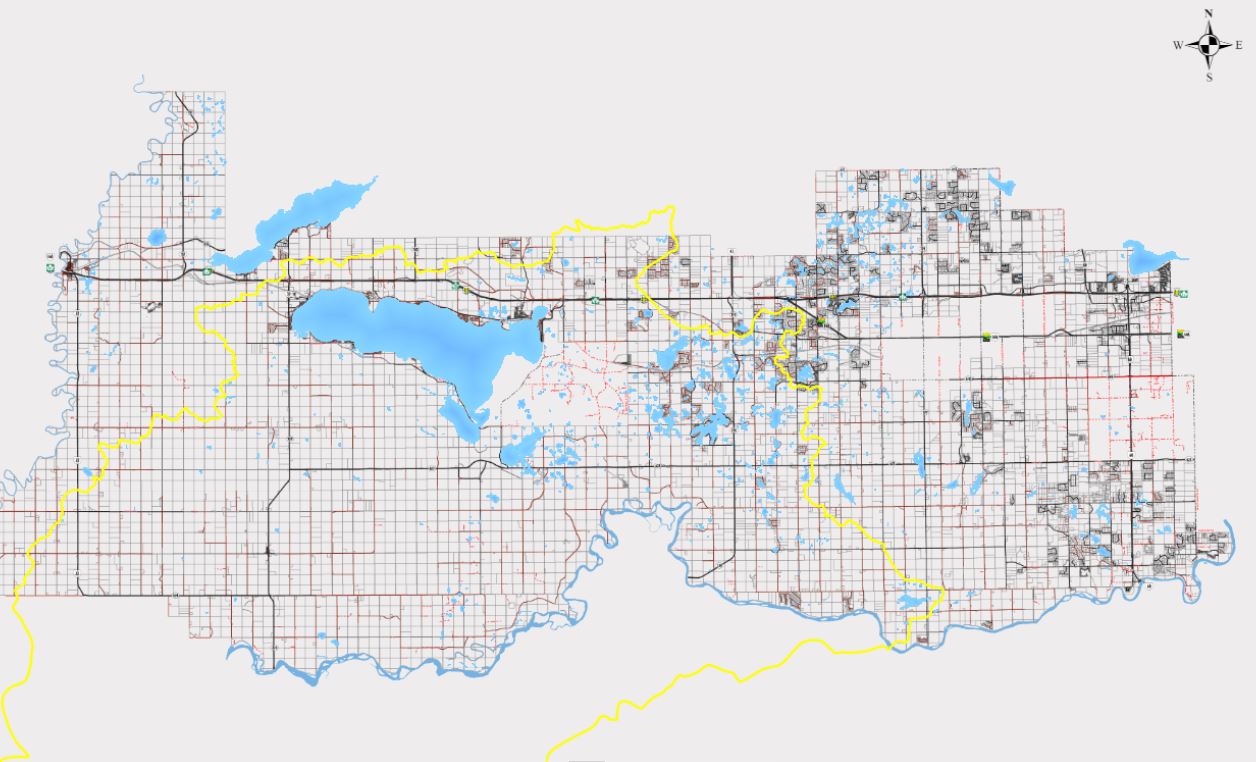

Innovation & Technology
ALUS provides participating communities with innovative technology and data infrastructures and tools. With these tailored solutions, ALUS captures detailed information about the benefits of ecosystem projects across the country, quantifying carbon sequestration, nutrient capture and biodiversity benefits. These data and technologies can then be applied to make strategic decisions about projects to ensure they deliver maximum ecological and financial benefit to the community.
ALUS by the Numbers
2023 Snapshot of ALUS’ On the Ground Impact

Active provinces

ALUS communities +1 since last year

Farmers and ranchers participating +400 since last year

Acres of wetland ecosystems +7,832 since last year
Acres of pollinator habitat +7,832 since last year

Acres reforested with native trees and shrubs +908 since last year
Acres of ALUS land +8,387 since last year
Invested by ALUS +$6.3M since last year
Thanks a million to farmers, ranchers and communities multiplying our investment on the ground
ALUS Community Projects
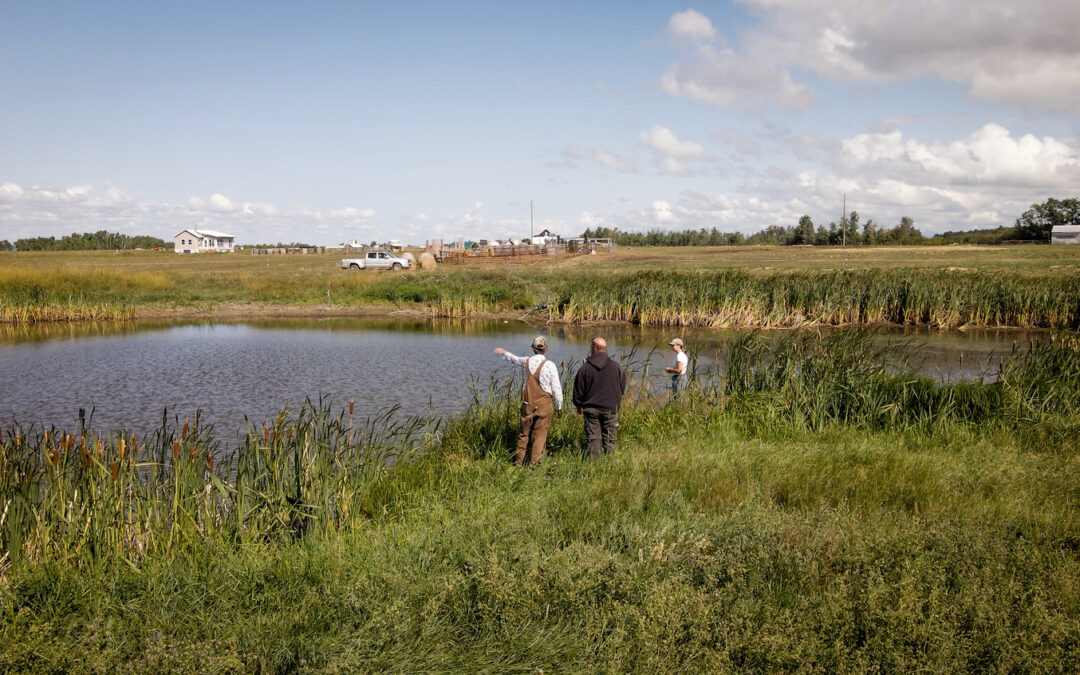
Wetlands on Working Lands for Climate Resilience
Farmers have been on the frontlines of the climate crisis, facing drought conditions in the west and flooding in the east. But many have discovered that creating wetlands on working lands can build resilience to extreme weather events, while also producing several...
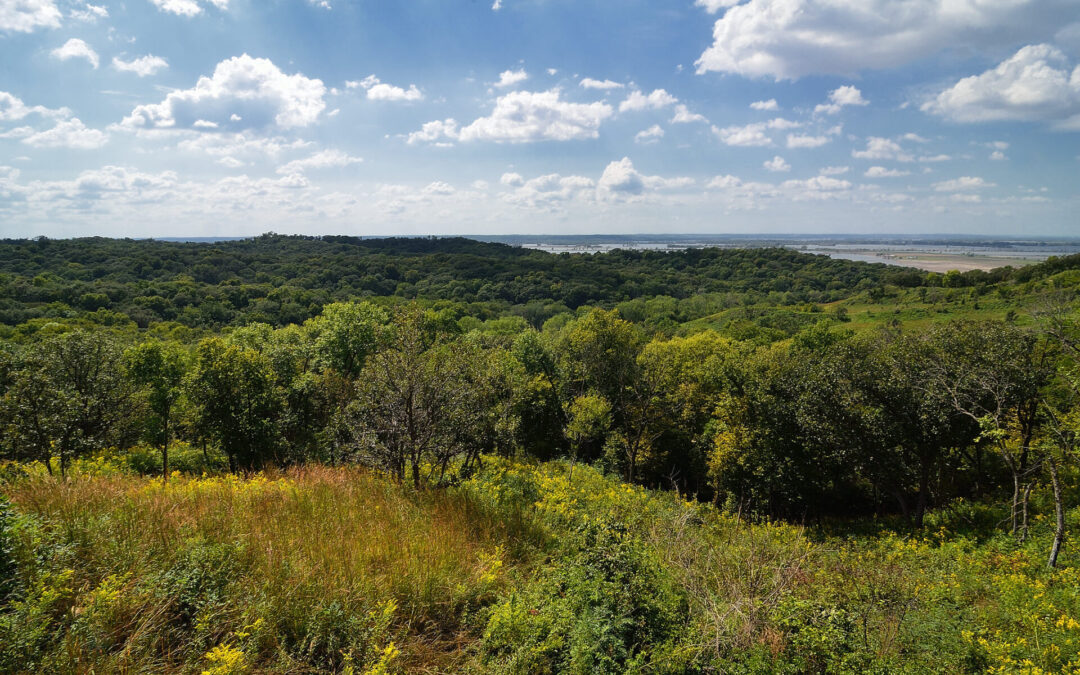
Iowa farmer helps launch the first ALUS community in the United States to bring diversity—and people—back to the land
Iowan Seth Watkins has a dream to bring biodiversity back to Southwest Iowa and build a brighter, more vibrant rural community. ALUS is one of the ways he wants to achieve it.Seth Watkins has been trying to make his farm smaller. He’s reduced his Iowa acreage from...
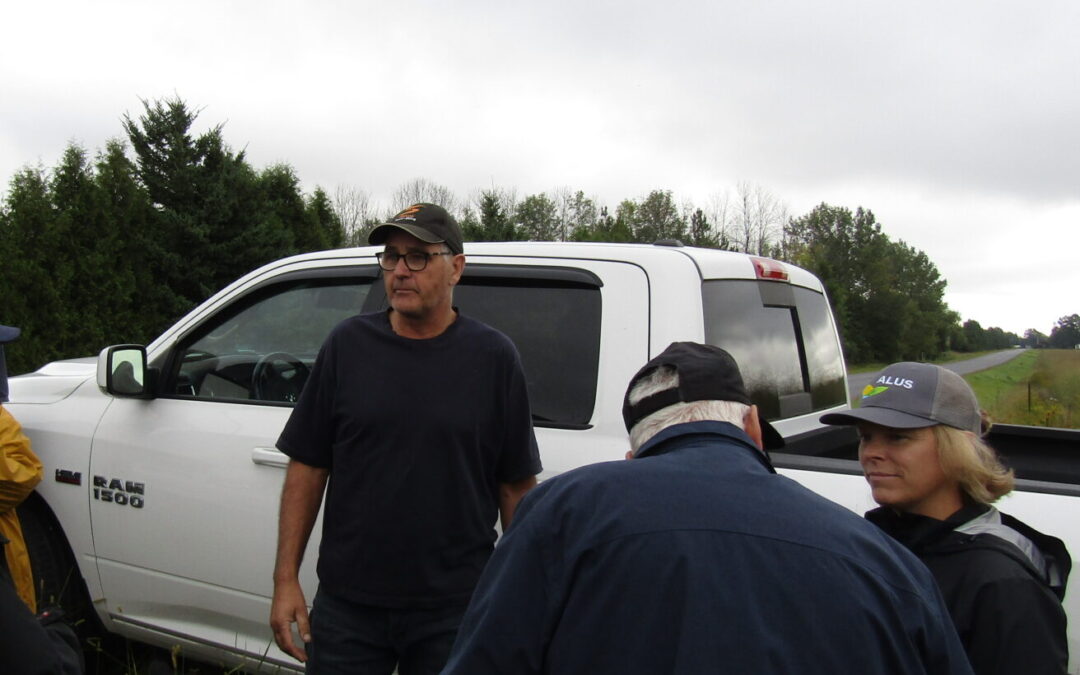
Ron Toonders, Switchgrass for Grassroots Resilience
Farmers like Ron Toonders are building resilient practices that benefit nature and the agricultural landscape in Ontario This photo depicts the root system of switchgrass, Panicum virgatum. (Grown at The Land Institute in Salina, Kansas) In the hot summer months,...

